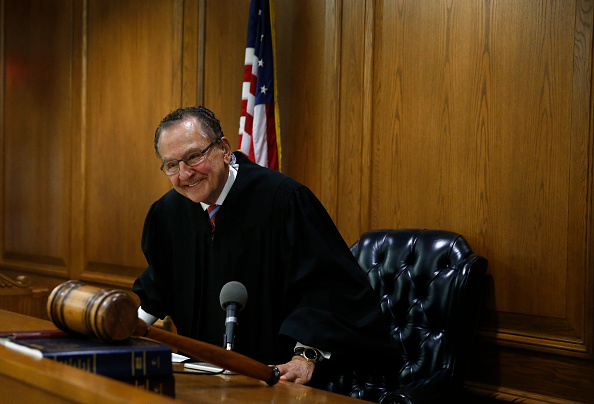Ethics 20/20 Commission Settles on Recommendations on Outsourcing, Confidentiality, Foreign Lawyers
The ABA Commission on Ethics 20/20 today reached consensus on the first pieces of the package of recommendations it will submit next year to the association’s policy-making House of Delegates.
The nature of the recommendations might come as some relief to members of the legal community who have been concerned that the commission’s marching orders—to consider the impact of technology and globalization on professional conduct issues for lawyers—might have set it on a mission to do something drastic.
But in its actions today, the commission sent signals that its recommendations—or at least most of them—are likely to be more evolutionary than revolutionary.
The co-chairs of the commission, which was created in 2009, also offered reassuring comments about what it is trying to accomplish.
“We’re trying to take bedrock principles in the rules and help the profession understand how they apply in a technological and global environment,” said Jamie S. Gorelick, a partner at Wilmer Cutler Pickering Hale and Dorr in Washington, D.C. “Some people think we have a hidden agenda, which we don’t really have.”
Gorelick’s co-chair, Michael Traynor, noted that law firms also are undergoing changes as business entities. “Our job is to help lawyers navigate their way through these changes,” said Traynor of Berkeley, Calif., a past president of the American Law Institute. “Maybe our role is evolutionary and transitional.”
Meeting today in Washington, the commission endorsed draft versions of five recommendations expected to be considered by the House of Delegates in August 2012 at the ABA’s annual meeting in Chicago. The recommendations and supporting reports have not been put into final form, however, and they have not yet been posted to the commission’s page on the ABA website.
The recommendations cover these issues:
• Outsourcing. Without taking a position on the practice, the commission proposes revisions to comments to existing rules in the ABA Model Rules of Professional Conduct, which are widely followed by the states, that identify factors lawyers need to consider when retaining outside lawyers to work on client matters, and affirming that a client’s informed consent should be obtained before outside lawyers are retained.
• Confidentiality. The commission proposes revisions to the Model Rules recognizing that electronically stored information, including metadata, is material subject to confidentiality rules. It also proposed revisions directing lawyers to make reasonable efforts to prevent inadvertent disclosure of information relating to representation of a client.
• Inbound foreign lawyers. One recommendation would apply the ABA Model Rule for Registration of In-House Counsel to lawyers from foreign jurisdictions. A related recommendation would also apply the ABA Model Rule on Pro Hac Vice Admission to foreign lawyers. Finally, the commission will propose revisions to Rule 5.5 of the Model Rules of Professional Conduct to allow temporary practice in U.S. jurisdictions, but with tougher restrictions than apply to American lawyers.
The Ethics 20/20 Commission still has some tough issues to deal with in the coming months, including alternative business structures, client development and alternative litigation financing. But the commission plans to consider even those issues within the context of existing ethics principles, Gorelick said.
“It’s not just about rule changes,” she said, “but also informing the profession about the impact of certain changes in technology, globalization and the way we communicate.”
Write a letter to the editor, share a story tip or update, or report an error.


